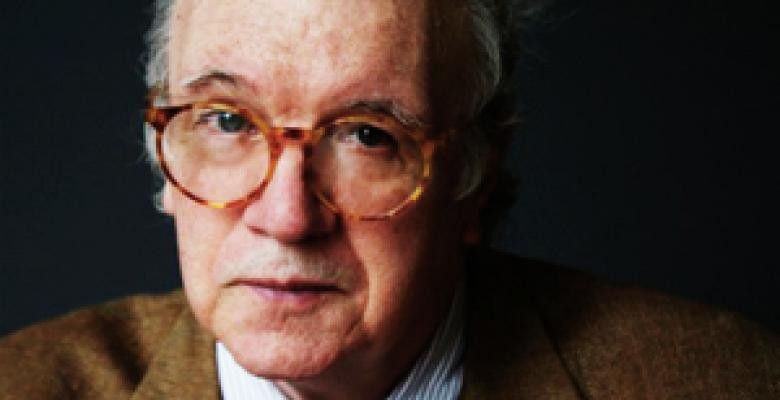Edsall, now the Joseph Pulitzer II and Edith Pulitzer Moore Professor of Journalism, shares his perspective with his Columbia Journalism Schoolstudents with a good measure of humor and skepticism. His years as a political reporter, 25 of them at The Washington Post, have made him a clear-eyed observer of the presidency, Congress, lobbying, tax policy, demographic trends and more. What he sees as he approaches his 12th presidential election cycle is “a death struggle between Republicans and Democrats to protect the benefits and goods that flow to their respective bases, each attempting to expropriate the resources of the other.”
His insights about that “death struggle” can be found on the Campaign Stops blog of The New York Times.
The inaugural column appeared on the op-ed page of the Times’ Sunday Review section in November and set forth the thesis of his forthcoming book, The Age of Austerity: How Scarcity Will Remake American Politics, arguing that whoever wins in 2012 will have to manage in an era defined by “a new politics of scarcity.”
“In place of shared abundance, battles at every level of government now focus on picking the losers who will bear the costs of deficit reduction and austerity,” he wrote. In his columns and book, Edsall paints a dire picture of two political parties unwilling to tolerate the kinds of compromise that once kept the wheels of government turning.
“We don’t see the give and take that used to be commonplace in Washington,” he said. “For example, in 1983, the House Democrats and the Reagan administration agreed to major legislation boosting the financing of Social Security. That kind of common ground is impossible to locate today.”
Since the 2008 economic collapse, battles have raged over everything from health care, taxes, union rights and unemployment benefits at the national level to law enforcement, garbage collection and teacher-to-student ratios at the local level. Without substantial economic growth, politics is now a zero-sum game—my gain is your loss—or worse.
“Scarcity creates more intense hostility between liberals and conservatives because they’re both trying to protect what they have, and they know they have to hurt the other side to do it,” he said.
At the core of Edsall’s argument is his conviction, based on social science research, that liberals and conservatives have fundamentally different personality traits that make it difficult for them to even speak the same language.
“Liberals tend to believe in compassion, non-violence and progressive redistribution of wealth, while conservatives embrace competitiveness, risk-taking, and law and order,” says Edsall. “Conservatives already lean toward seeing the world as a zero-sum game, whereas liberals do not.”
He asserts that Republicans were psychologically prepared for the debt-ceiling fight last summer because they were willing to risk everything. Democrats, by contrast, were more focused on the prospect of long-term harm arising from the country defaulting on its debt.
Edsall believes the financial collapse has given Republican priorities traction by dealing a blow to the instinct of generosity so central to liberalism. He credits the Tea Party with driving the Republican focus on the deficit, while the Occupy Wall Street movement has pressured Democrats to concentrate on income inequality and joblessness.
He recently wrote in the Times that the 2012 election will hinge on which view voters favor. “Will deficits and debt continue to dominate as they did in 2010, to the advantage of Republicans, or will inequality and government intervention to promote job creation be central, favoring Democrats?” he wrote.
Either way, he sees the reduction of politics and policy-making to a naked resource war as a dangerous development and is concerned that, if not reversed, the age of austerity he describes in his new book could signal a prelude to American decline.
